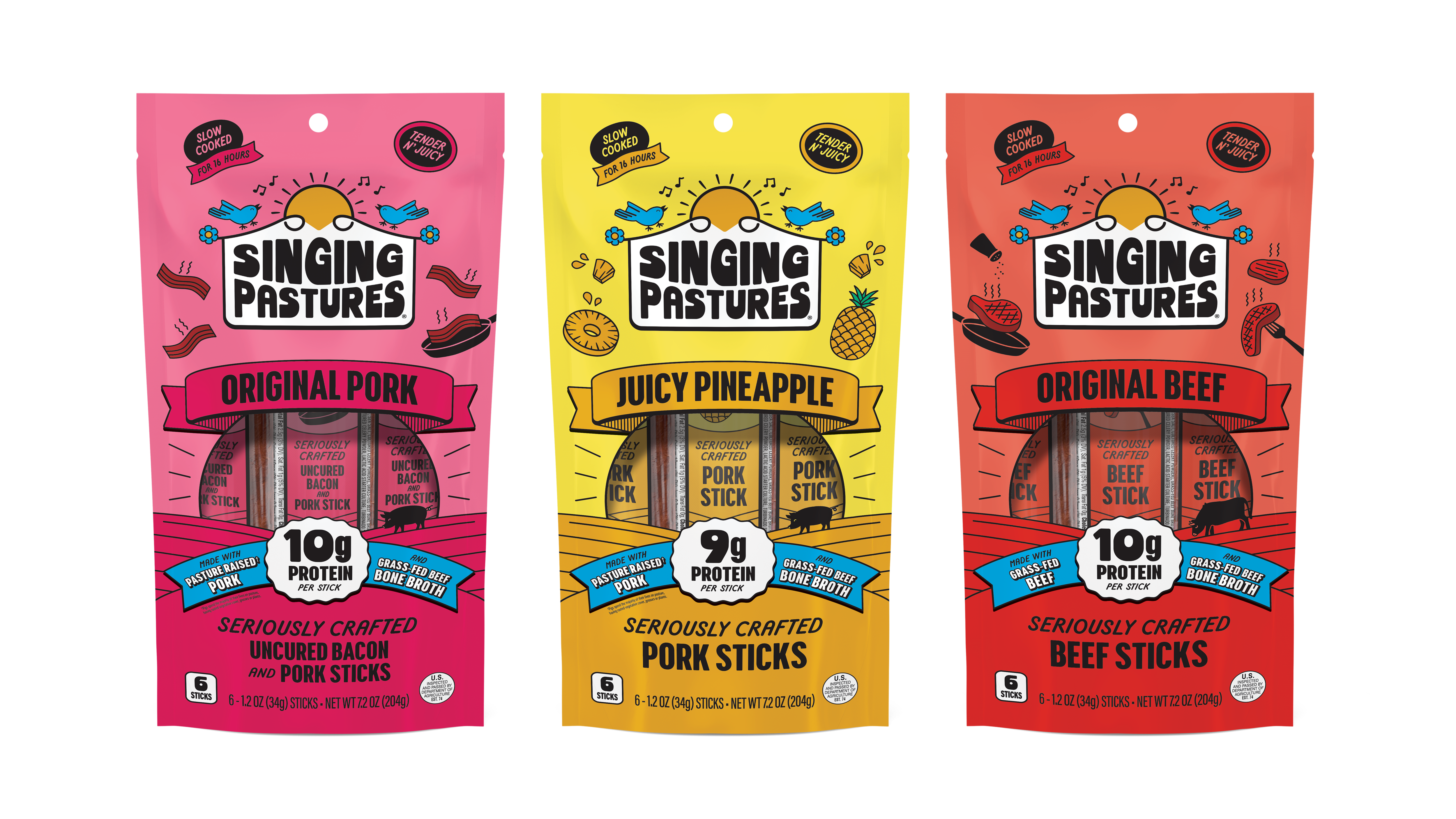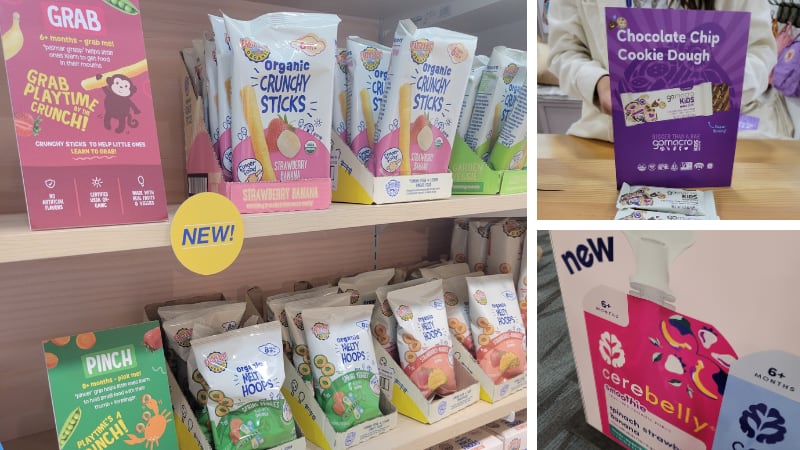Singing Pastures, a husband-and-wife-owned meat stick company in Maine, shows that embracing slow farming techniques can speak to consumers fed up with factory farming while driving revenue.
Holly Arbuckle, co-founder and CEO of Singing Pastures, who owns the company with her husband, a ninth-generation farmer, says their customers want to know what they are eating and where it comes from. Digital media, influencer partnerships and in-store activations that transparently tell the story of their farming practices and products attract consumers who are hungry for authenticity and transparency in pursuit of a low carbon footprint.
“We’ve taken the slow, traditional route so the integrity of the ingredients really shines, while pairing it with modern packaging that fits today’s wellness lifestyles,” says Arbuckle.
“The key to marketing meat snacks is meeting consumers where they are: on the go, busy, but still health conscious,” says Arbuckle. “Traditionally, meat sticks were positioned as survival fuel; we frame them as better-for-you wellness snacks.”

The small farm-driven brand with big ideas will make more than $1 million in revenue this year and has products in an estimated 700 brick-and-mortar stores nationwide. The company is currently in talks with Costco and Whole Foods.
They have been growing around 15% year over year for the past three years.
Recently, Singing Pastures rebranded a product line that will scale over the next three years. As the company scales, they plan to add a certified regenerative SKU and donate 1% of profits to regenerative agriculture organizations.
Still relatively young, Singing Pastures has also won pitch competitions, including the Naturally New England Pitch Slam and the Greenlight Maine Competition.
The old ways of farmers
Singing Pastures specializes in making pork and beef meat sticks from pasture-raised, heritage variety pigs and premium grass-fed cows.
“Everything starts with amazing taste and respect for nature,” says Arbuckle.
In opposition to large-scale agricultural farms, they do not use ractopamine, a feed additive that increases livestock’s muscle growth and is common in large-scale enterprises. Up to 80% of US pork may contain ractopamine, according to the consumer advocacy group PIRG. The drug is banned in more than 160 countries, including the European Union and China, and opposed by many animal advocacy groups, such as the Animal Legal Defense Fund.
Clean label’s marketing potential
Singing Pastures products have clean label ingredients, which Arbuckle says appeal to consumers who care enough to read labels, and relatively few offerings.
To make the Roam sticks shelf-stable, Singing Pastures relies on natural fermentation and smoking. They do not use encapsulated citric acid, also called sausage tang, or chemical/liquid smoke, as are common in the industry. Varieties include Original Beef, Original Uncured Bacon & Pork and Juicy Pineapple Pork Sticks.
The Roam stick casing is made from dye-free collagen. Red dye is not necessarily listed in the ingredients of other snack sticks because it is considered industry standard. Each 1.2-ounce stick is packed with 9-10 grams of protein and has 70-80 calories.
“We want the experience to align with the joy of taste, and the knowledge that our meat sticks are seriously crafted with care at every step,” says Arbuckle.
She adds that to match this philosophy, the Singing Pastures website is currently undergoing a makeover to better appeal to Gen Z and Millennial shoppers.
“We’re going for playful, colorful and joyful,” she says. “Eating is a pleasure.”
Beyond macho marketing
Arbuckle says Singing Pastures meat sticks stand out for the brand’s lack of hyper-masculine imagery. No athletes. No cowboys. No road warriors. She said she wants customers, particularly women, to feel seen in the meat stick category and share her brand’s values of wellness and sustainability.
While not explicitly targeting women, she said she believes the collagen casing speaks to female consumers who care about their skin and joint health.
“As a female founder and a mom, I think about nourishment, wellness and balance,” says Arbuckle, who adds that perspective drives everything from package design to the language surrounding products. “It signals to women that this space is for them too, and it opens the door for a much broader conversation about who gets to belong in protein snacking.”



